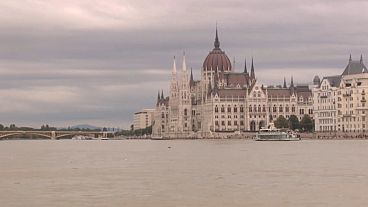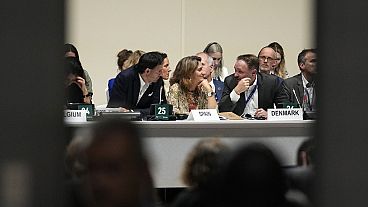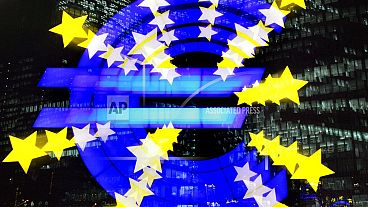People with right-wing views are more likely to choose a leader who shares their religious beliefs, the Pew Research Centre told Euronews.
Around 84% of the world population is affiliated with a certain religion, a number that is expected to grow to 87.6% by 2060 according to the Pew Research Centre. The US think tank recently published a study on 35 countries showing that the religious orientation of political leaders still matters a lot to voters and their choices.
The countries where the link between religion and politics seems stronger are all Asian, with Bangladesh (91%) Indonesia (90%) and others at the top of the chart, followed by several African countries.
But there are some relevant rates in many European countries and the Middle East too.
In Turkey, for example, 69% of respondents believe it's important that their leader shares the same religious beliefs. In Israel, it's 55%.
The highest rates in Europe are concentrated in the east: Poland (52%), Greece (42%) and Hungary (40%).
The lowest ones are in western and northern Europe.
In the Netherlands, only 15% of respondents care that their leader shares the same religion, 17% in France, 18% in Spain, 22% in the UK and 23% in Germany.
Italy is the country with the highest percentage among Europe's biggest economies, with 30%.
Right-wing voters more likely to make religion-oriented choices
"We see in the United States that often people's religious identities or religious practices are tied to their political views or their political identity, and we see this elsewhere in the world", Pew's senior researcher Jonathan Evans tells Euronews.
"We found that there's a divide on several things between eastern and western Europe and we found people in eastern Europe are more likely to hold some of these religious views saying that religion is very important in their life."
He adds that "people on the ideological right are more likely than those on the left, or the centre, to say that religious beliefs and attributes of their leader are important."
"People who identify with the right end of the political spectrum are more likely to say things such as: 'It's important for my leader to have religious beliefs that are the same as mine or have strong religious beliefs, even if they differ from my own,"" Evans says.
"While this isn't necessarily true in every single country there is a broad pattern that we do see."












